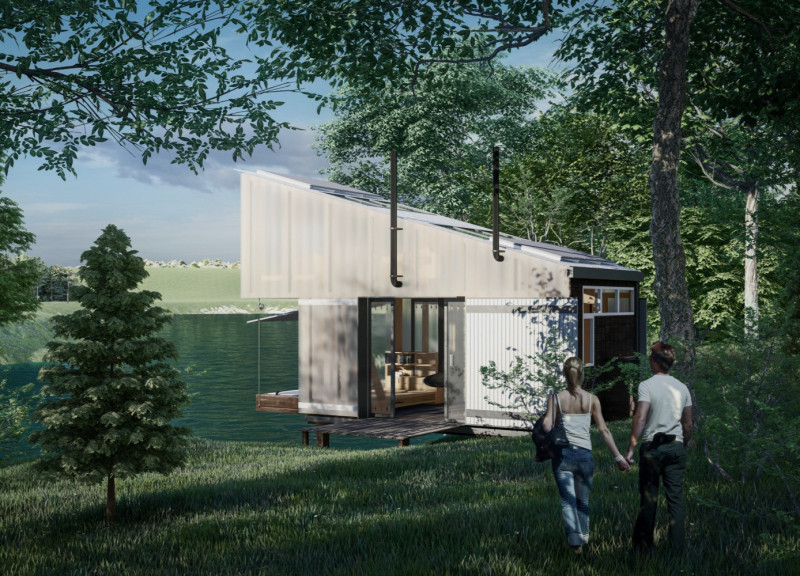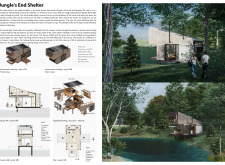5 key facts about this project
The architectural concept revolves around a flexible spatial arrangement, facilitating various activities ranging from work to leisure. The shelter comprises interconnected zones, including designated areas for living, dining, and utility purposes. Each space is intentionally designed to encourage interaction among users, fostering a sense of community while maintaining personal privacy.
Sustainable design is a core principle evident in the choice of materials and structural elements. The building features a façade of polycarbonate sheets, which provide natural illumination while ensuring durability against the elements. Timber, a renewable resource, is utilized not only in structural components but also in furnishings, enhancing both functionality and aesthetic warmth. The incorporation of solar panels on the roof allows for energy independence, underscoring the project’s commitment to environmental responsibility.
Unique to Jungle's End Shelter is its adaptive design approach. The integration of modular furniture enables reconfiguration of living spaces to suit diverse needs, illustrating an innovative utilization of limited space. Cross-ventilation strategies enhance airflow throughout the interior, promoting thermal comfort without relying heavily on mechanical systems. Additionally, water sustainability is prioritized through the inclusion of rainwater harvesting systems.
The project's architectural design details are noteworthy for their simplicity and effectiveness. Architectural plans and sections reveal a focus on maximizing natural light and minimizing energy consumption. The elevation of the building protects it from potential flooding, showcasing a thoughtful response to the challenges posed by its jungle location.
The Jungle's End Shelter exemplifies how architecture can contribute to a sustainable lifestyle while respecting the surrounding ecosystem. Readers are encouraged to explore the project presentation further for additional details regarding architectural plans, designs, and sections to gain a comprehensive understanding of this innovative project.























